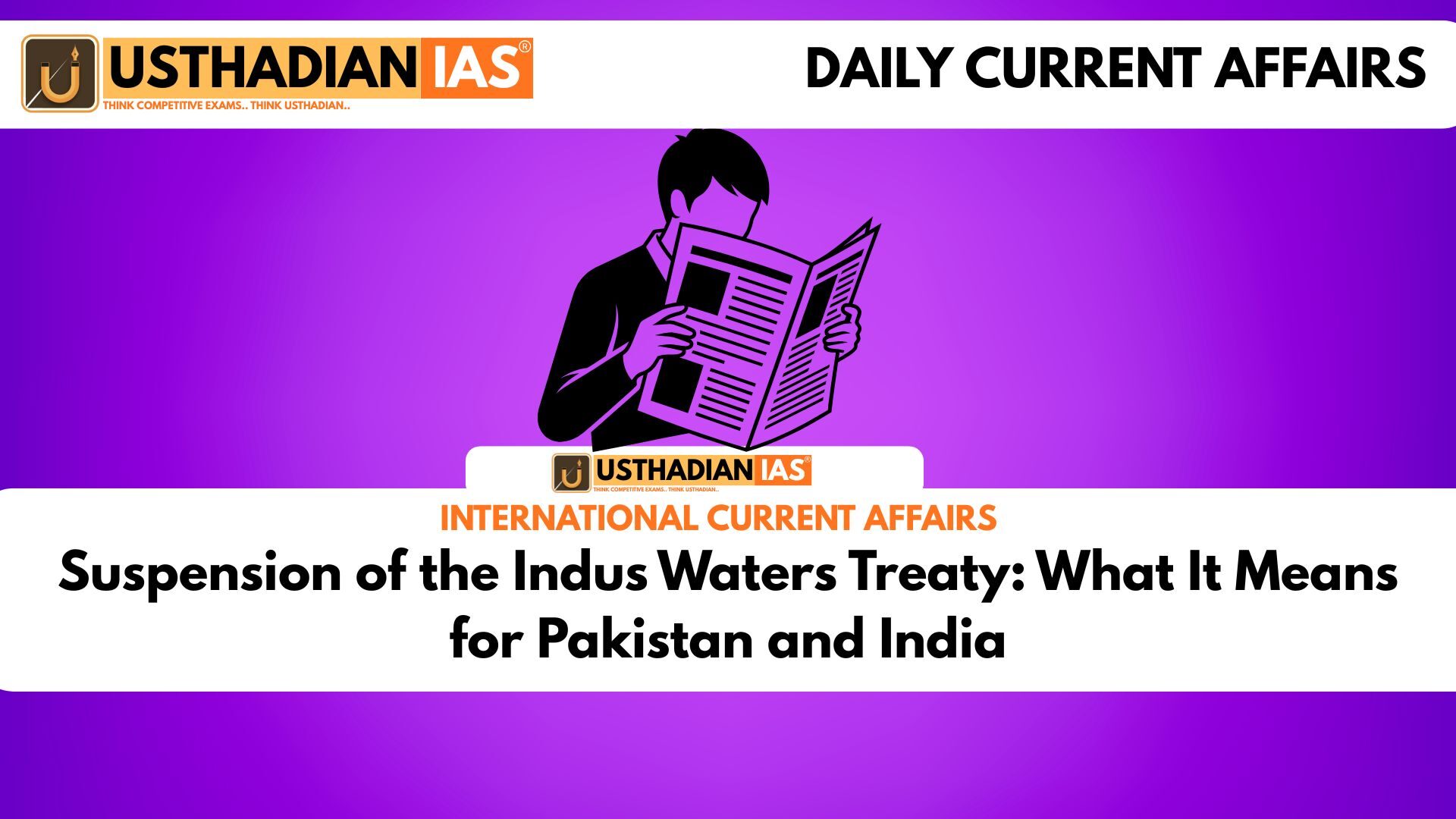A Historic Suspension with Geopolitical Shockwaves
Suspension of the Indus Waters Treaty: What It Means for Pakistan and India: For the first time since 1960, India suspended the Indus Waters Treaty (IWT) with Pakistan, following a deadly terror attack in Pahalgam on April 21, 2025, that claimed 26 tourist lives. The move, announced by India’s leadership, signals a strong diplomatic message and represents a historic change in the decades-old water-sharing pact mediated by the World Bank. It also coincides with other retaliatory steps like revoking visa services, closing the Attari-Wagah border, and expelling Pakistani personnel.
What the Indus Waters Treaty Stands For
The Indus Waters Treaty (IWT), signed on September 19, 1960, divides the waters of six rivers in the Indus basin between India and Pakistan. India was granted exclusive rights over the Eastern Rivers — Sutlej, Beas, Ravi, while Pakistan received the Western Rivers — Indus, Jhelum, Chenab, with India allowed limited, non-consumptive use. The treaty includes 12 Articles and 8 Annexures, defining technicalities, dispute resolution, and oversight. It has long served as a rare example of cooperation even during wars and border tensions.
Why the Suspension Matters Now
The treaty’s suspension gives India strategic leverage by limiting oversight for Pakistani officials on projects like the Kishenganga and Ratle Hydroelectric Projects. While India cannot immediately halt river flows due to infrastructure limitations, this symbolic suspension indicates a shift in water diplomacy. It could alter how future hydroelectric projects are implemented across Jammu and Kashmir.
Legal and Diplomatic Ramifications
A critical fact is that the IWT has no exit clause. According to Article XII(3), the treaty is perpetual, unless both countries agree to a modification. India has used this clause earlier to issue notices in January 2023 and September 2024, demanding treaty review due to Pakistan’s refusal to resolve issues through neutral arbitration. The World Bank-appointed Neutral Expert, Michel Lino, ruled in early 2025 that he had the jurisdiction to proceed, affirming India’s right to technical arbitration.
Pakistan’s Vulnerability and Regional Impact
Over 80% of Pakistan’s agriculture relies on the Indus basin. Any threat to this water supply could severely affect its food security, rural economy, and environmental health. The move also raises alarms about regional stability, as the treaty has often acted as a buffer against escalation. If not managed diplomatically, the suspension might provoke international concern, especially from water-stressed regions like Sindh and Punjab in Pakistan.
STATIC GK SNAPSHOT
Suspension of the Indus Waters Treaty: What It Means for Pakistan and India:
| Topic | Details |
| Treaty Name | Indus Waters Treaty (IWT) |
| Signed On | September 19, 1960 |
| Mediator | World Bank |
| Treaty Rivers | Indus, Jhelum, Chenab (Pakistan); Sutlej, Beas, Ravi (India) |
| Key Projects in Dispute | Kishenganga HEP, Ratle HEP |
| Treaty Structure | 12 Articles, 8 Annexures |
| Exit Clause | No unilateral withdrawal clause |
| Neutral Expert | Michel Lino (appointed in 2022 by World Bank) |
| India’s Notices | Jan 2023 (1st), Sep 2024 (2nd) |
| Suspension Announced | April 2025 (Post Pahalgam Attack) |








